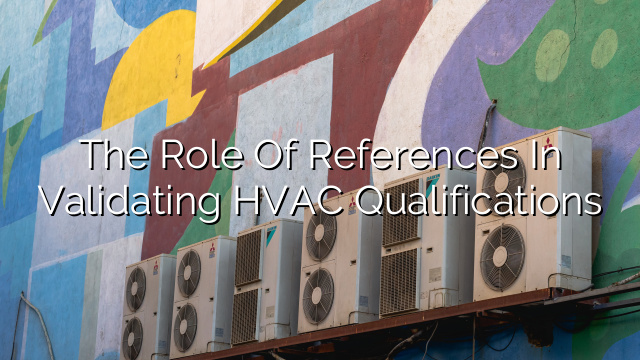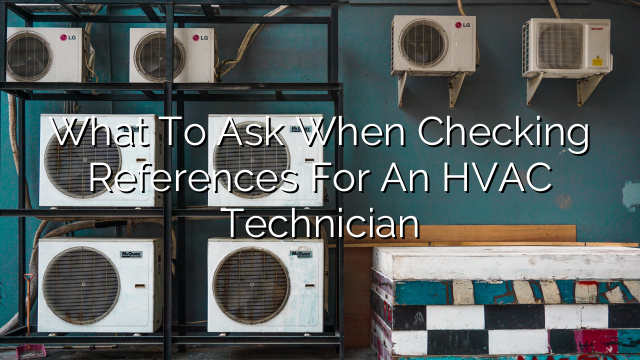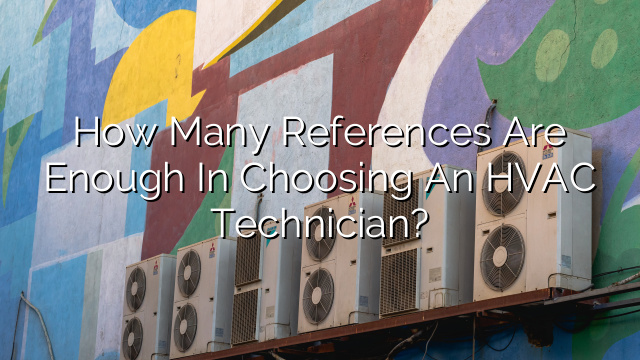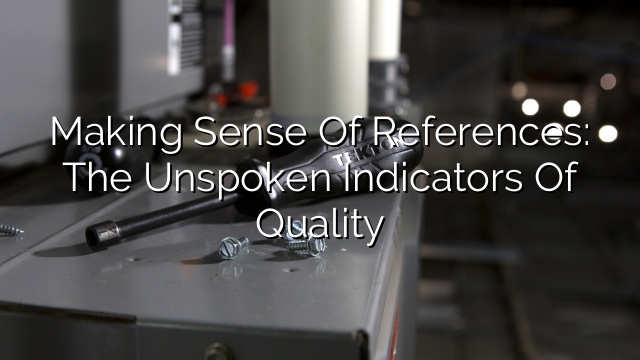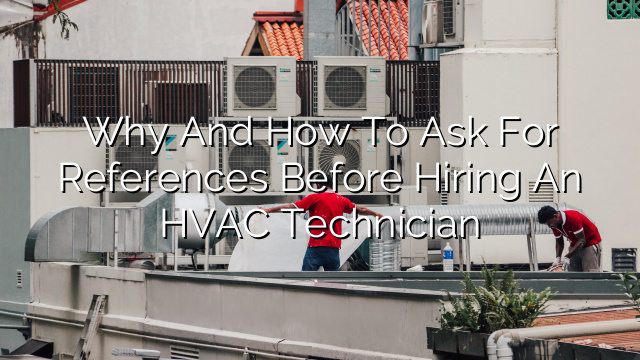The Role of References in Validating HVAC Qualifications
When it comes to hiring an HVAC technician, you want to ensure that you are choosing someone who is not only qualified but also trustworthy. One of the best ways to validate an HVAC technician’s qualifications is by checking their references. References can provide you with valuable insight into the technician’s experience, skills, and work ethic. In this blog post, we will explore the role of references in validating HVAC qualifications and why they are an essential part of the hiring process.
What are references?
References are individuals who have had firsthand experience working with the HVAC technician. They can be previous employers, colleagues, or even customers. These individuals can vouch for the technician’s abilities and provide valuable information about their past performance and professionalism.
Why are references important?
References play a crucial role in validating an HVAC technician’s qualifications for several reasons:
- Verification of Skills and Experience: By speaking with a technician’s references, you can verify their claimed skills and experience. References can provide insight into the type of HVAC work the technician has done in the past and confirm whether they have the necessary expertise for the job you are hiring for.
- Confirmation of Work Ethic and Professionalism: References can shed light on the technician’s work ethic and professionalism. They can provide information about their punctuality, reliability, and ability to work well with others. This information is crucial in determining whether the technician will be a good fit for your team and meet your expectations.
- Validation of the Technician’s Claims: During the hiring process, HVAC technicians may make claims about their achievements and skills. References can help validate these claims by providing concrete examples and evidence of the technician’s abilities. This can give you peace of mind and confidence in your hiring decision.
How to check references
Checking references requires a systematic approach to ensure that you gather accurate and relevant information. Here are some steps to follow:
- Contact the references: Reach out to the references provided by the HVAC technician. You can do this via phone or email. Clearly communicate your intentions and mention that you would like to discuss the technician’s qualifications and work performance.
- Prepare questions: Before contacting the references, prepare a list of questions that will help you gather the information you need. Ask about the technician’s technical skills, ability to meet deadlines, reliability, and overall work approach.
- Listen attentively: During the reference check, listen attentively to the references’ responses. Take note of any positive or negative comments about the technician’s qualifications and work performance. Pay attention to any patterns or consistent feedback.
- Follow up: If you have any follow-up questions, don’t hesitate to reach out to the references again. It’s important to gather as much relevant information as possible to make an informed hiring decision.
Frequently Asked Questions (FAQs)
Q: What questions should I ask the references?
A: Here are some questions you can ask the references:
- – Can you tell me about your experience working with the HVAC technician?
- – How long did the technician work for you/with you?
- – Did the technician demonstrate a strong understanding of HVAC systems and repair procedures?
- – How would you rate the technician’s problem-solving skills?
- – Was the technician reliable and punctual?
- – Did the technician work well with others and communicate effectively?
- – Would you recommend the technician for HVAC work?
Q: How many references should I check?
A: It is generally recommended to check at least three references. This allows you to gather a well-rounded perspective on the technician’s qualifications and work performance. However, the number of references you check may vary depending on your specific hiring requirements.
Q: What if the technician doesn’t provide any references?
A: If a technician doesn’t provide any references, it may be a red flag. References are an essential part of the hiring process and help validate the technician’s qualifications. Without references, it becomes challenging to verify the technician’s skills and experience. Consider requesting references or exploring other options to ensure you hire a qualified HVAC technician.
Conclusion
Hiring a qualified HVAC technician is crucial for the success of your HVAC business. References play a vital role in validating an HVAC technician’s qualifications, skills, and work ethic. By checking references, you can verify the technician’s claims, confirm their skills and experience, and ensure they are the right fit for your team. Be sure to follow a systematic approach when checking references, and ask relevant questions that will help you gather the information you need to make an informed hiring decision. Remember, taking the time to check references can save you from potential headaches down the line and help you build a reliable and skilled HVAC team.

